For example, Representative Susan Lynn, who received thousands from pro-voucher, out-of-state organizations, wrote an opinion article for her local newspaper. But the public isn't buying it. People are speaking out, like this woman from Tennessee who commented on that article:
People are doing research, too, and realizing things like this about the pro-voucher supporters who testified in the House Committee last week:
- In every state that has implemented vouchers, the vouchers started small as a reason to "save poor children trapped in failing schools." But the vouchers expanded, serving upper class students, and further exacerbating the starving of public schools and denying poor students their right to an excellent education.
- The bottom 5% of schools is ever-changing and endless. Logically, there's no way to get every school in the state out of that bracket! There will always be a bottom 5%. Furthermore, the smaller schools that serve high populations of foreign students are at a severe disadvantage against affluent districts.
- Rural and suburban legislators who think their districts are safe, beware... all it takes is one school in the bottom 5% and your district will be ripe for voucher-picking. Once the poor kids from Memphis are "lifted out" with a voucher, all eyes will be on rural and suburban schools to take their place at the bottom of the rankings.
- Public money funding private religious schools hard to discriminate against once the Pandora's Box has been opened. What if extremist religions such as Westboro Baptist Church(that garners media attention by protesting at the funerals of American soldiers and even at the funeral of a child of a politician) wants to open a private school? What about churches of Scientology? Satanic Houses of Worship? Schools of Witchcraft (not Hogwarts, of course)? Who gets to decide if they get public voucher money to educate children?
- Court and legal fees to battle vouchers could be better spent to fund and strengthen schools that serve the poorest areas. In other states, courts have ruled that vouchers are unconstitutional. This will happen in Tennessee, too, if vouchers are passed.
- Vouchers have not increased educational outcomes in other states that have implemented them. Vouchers have been proven to have harmed students in Louisiana. The studies that pro-voucher supporters share with legislators are funded by those pro-voucher organizations and are not accurate.
Contact your legislator to tell him/her to vote against vouchers. It is too late in the TN Senate, but the TN House of Representatives votes on the voucher bill on Monday afternoon. So, HURRY!!!!

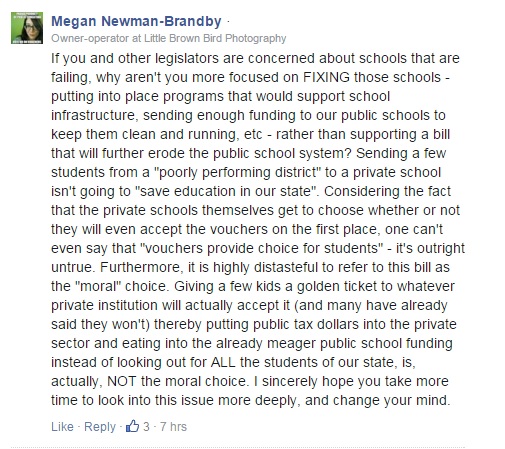
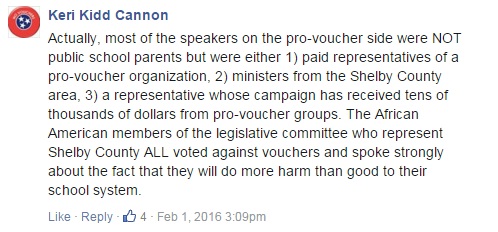
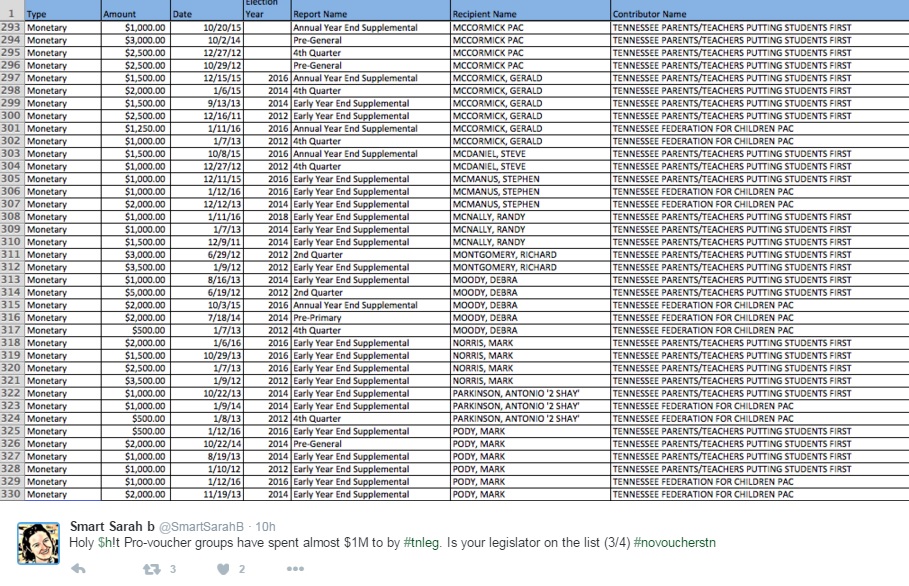
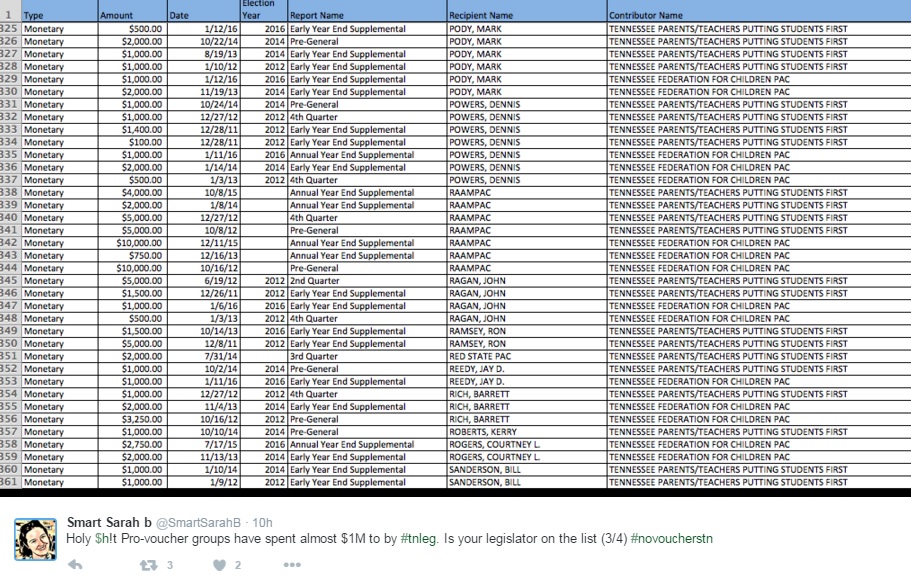
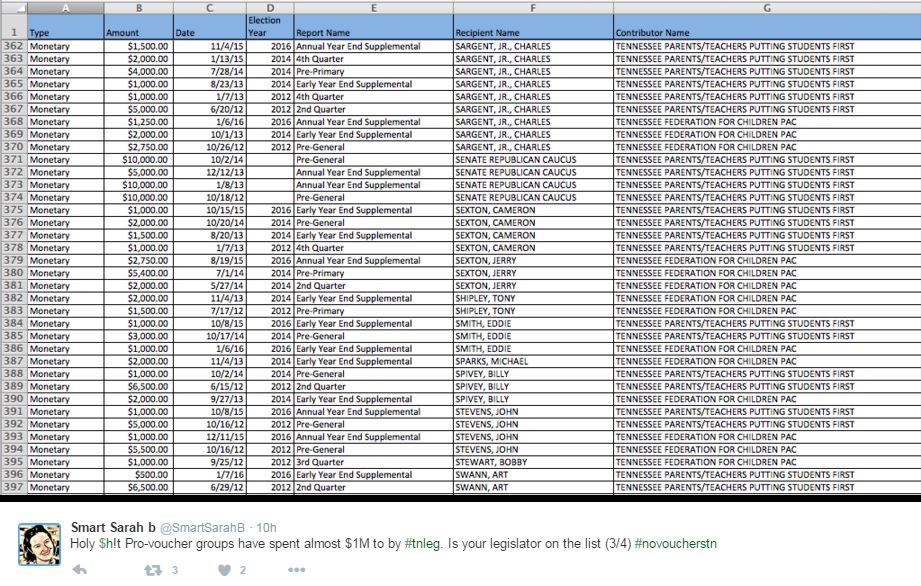
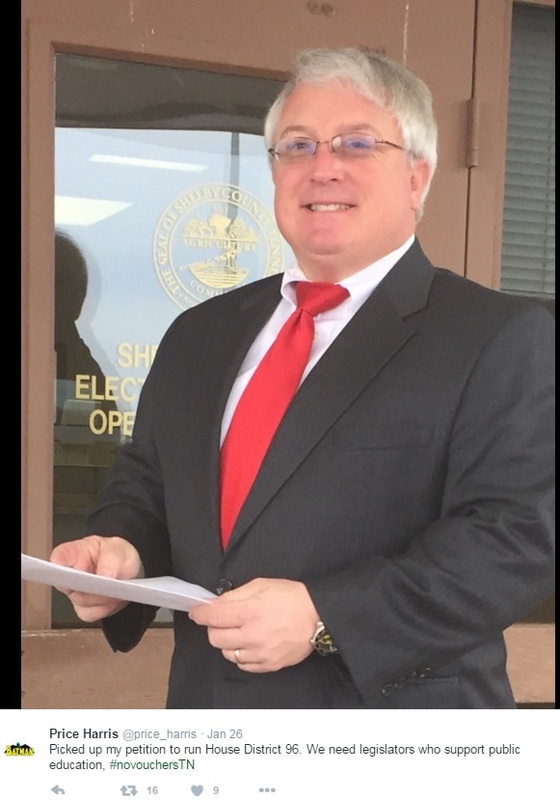
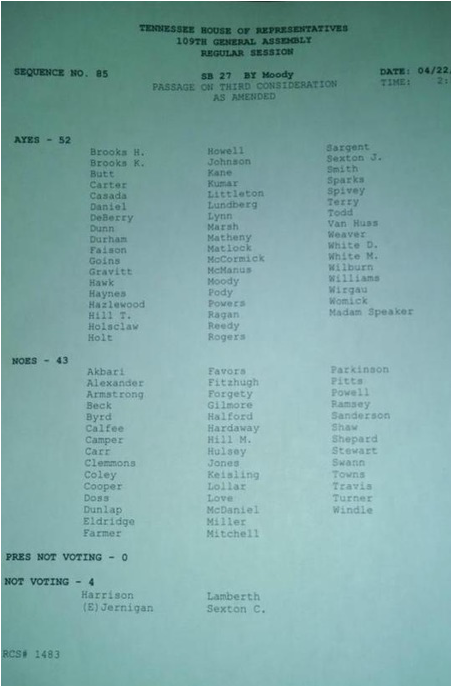


 RSS Feed
RSS Feed
